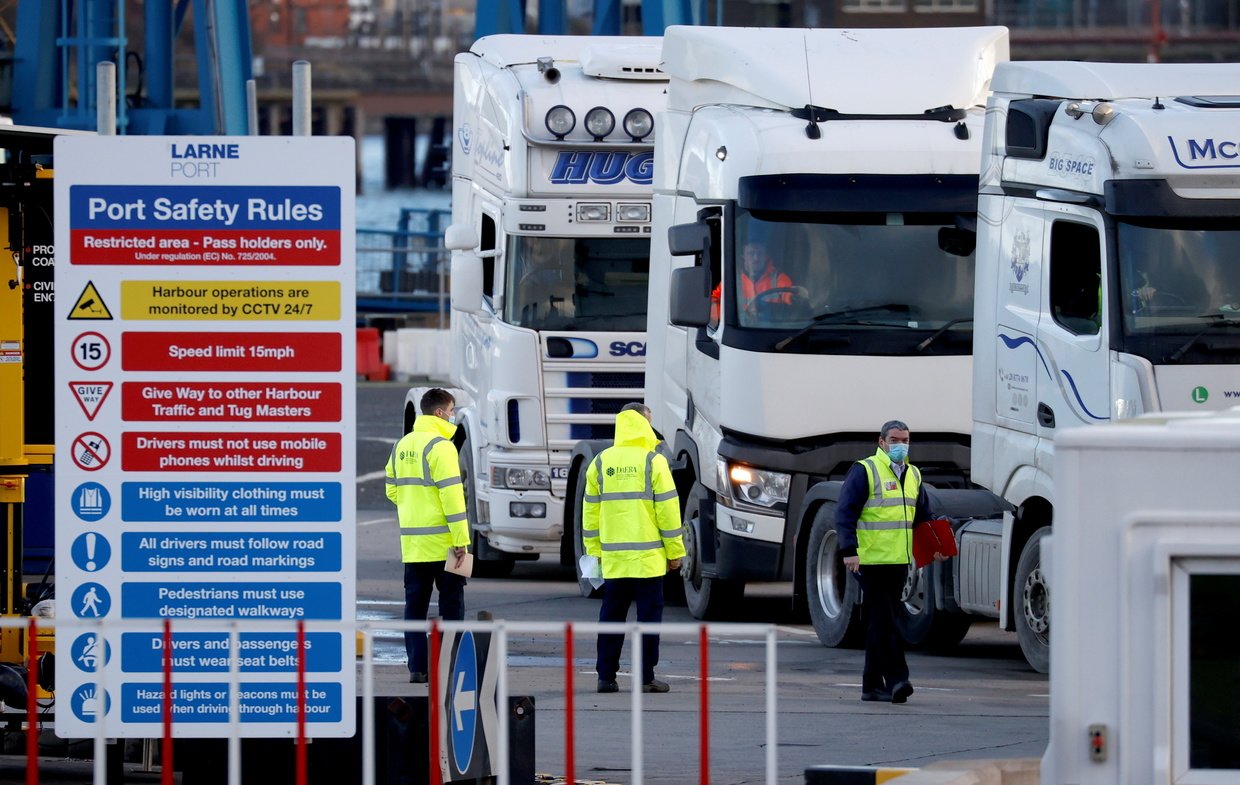Shoppers in Northern Ireland are facing empty shelves at supermarkets as new customs paperwork has left major retailers facing shortages across hundreds of products due to the post-Brexit trade agreement.
High-demand products such as fresh fruit, vegetables, and meat are among the products worst affected, as food suppliers face delays getting goods to the UK region.
Major British retailers, including Tesco, Sainsbury's and Marks & Spencer, have struggled to adapt their supply chains since new customs rules came into effect on January 1, when the Brexit transition period drew to a close.
Industry spokesman Glyn Roberts said a “huge amount of Brexit bureaucracy” had led to customers facing empty shelves in grocery stores.
“I think, at the end of the day, it will collapse into place, but these next few months are going to be critical,” the Retail NI chief told the Financial Times.
The newly introduced paperwork has resulted in hauliers spending hundreds of thousands of pounds sending empty lorries to Northern Ireland.
“Exports are doing well. Northern Irish produce is hitting the shelves of supermarkets across Great Britain,” explained Seamus Leheny of Logistics UK.
“However, that’s creating a problem because hundreds of lorries are leaving NI every day for England, but because the suppliers in GB have these formalities to comply with to send their goods to Northern Ireland, a lot of them have either suspended or are delaying loads,” he added.

Northern Ireland’s First Minister Arlene Foster said it is “entirely unacceptable that these issues continue to persist.”
“We're asking for solutions to what are real, meaningful problems affecting our haulage industry, affecting our car dealers, affecting people receiving parcels – or rather not receiving parcels. All of those issues have to be dealt with,” she added.
The additional paperwork is a result of the Northern Ireland Protocol in the UK’s withdrawal agreement with the European Union. The protocol was designed to resolve the Irish border issue, which was one of the main sticking points in the divorce talks.
In order to prevent the return of checkpoints at the politically sensitive frontier, the EU and the UK essentially agreed to move new regulatory and customs processes to the Irish Sea, meaning checks are now focused on trade between Britain and Northern Ireland.















